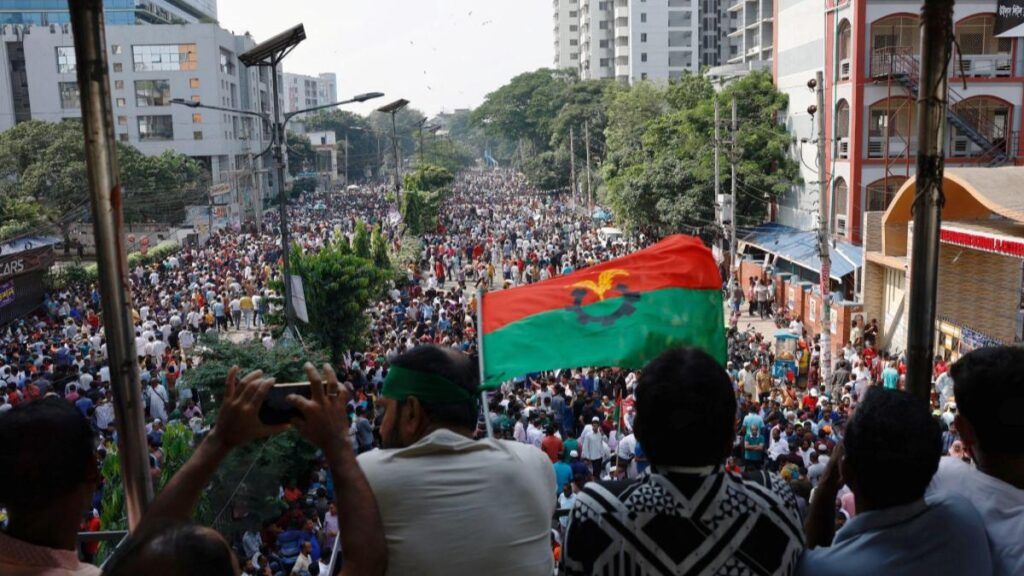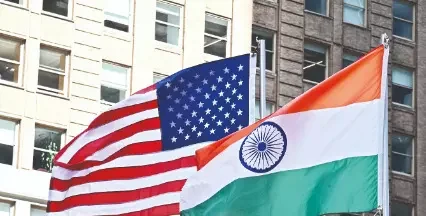MUMBAI: A cross-section of companies from India operating in Bangladesh are likely to be impacted due to the ongoing political crisis in the neighbouring country. Firms from FMCG to retail, pharmaceuticals to auto have exposure to India’s neighbour on the eastern front including Marico, Emami, Dabur, Godrej, Jubilant FoodWorks, Trent, Sun Pharma, Tata Motors and Hero MotoCorp among others.
In an earnings’ call this week, Marico’s MD & CEO Saugata Gupta admitted that the situation in Bangladesh was being monitored closely by the company. Marico Bangladesh, which is a listed subsidiary of Marico, contributed 11% to the parent firm’s FY24 consolidated topline and 44% to its international revenue.
“We have been operating in Bangladesh for 20 years, weathered several storms in the past and are hopeful of better days ahead,” Gupta told investors on Monday, when the incumbent Prime Minister Sheikh Hasina resigned and fled the country following a month-long agitation over reservations in government jobs.
Marico is also looking to bring down its dependence on Bangladesh to 40% of its international business by FY27 in view of the political instability, the company said in its June 2024 quarter investor presentation.
“We have under 1% of our topline coming from Bangladesh at the moment. Yet, the political turmoil does not augur well for us or for FMCG companies in general that operate in Bangladesh because it was a market that showed enormous potential,” said Mohit Malhotra, CEO, Dabur India.
Godrej Agrovet, which is part of the Godrej Industries Group, runs a 50:50 joint venture with Advanced Chemical Industries, a Bangladesh-based conglomerate, to manufacture and market animal feed and poultry hatchery. This business contributed 20% to Godrej Agrovet’s FY24 consolidated topline and remains a key player across all animal feed categories in Bangladesh.
When contacted, Nadir Godrej (chairman of Godrej Agrovet) said the company was monitoring the situation in Bangladesh and was hoping it would improve in the coming days.
Data from the International Monetary Fund (IMF) shows that the Bangladesh economy had clocked over 5.5% growth annually every year since calendar year 2010, hitting a high of 7.9% in 2019, though 2020 grew by 3.4% due to the Covid-19 pandemic. The IMF expects Bangladesh’s GDP growth to slow down to 5.7% in 2024 from 6% in 2023 in part due to the political crisis which has crippled the economy for over a month now.
For instance, industry sources say that Emami, which has a manufacturing unit in Gazipur, Bangladesh and generates 5% of its total revenue from India’s neighbour, had to shut down its plant due to prevailing environment. Work has been hampered due to ongoing protests, industry sources said, with the company advising its staff to stay safe.
The same goes for large apparel retailers such as Trent, Arvind Fashions and Reliance Retail that count on neighbouring markets such as Bangladesh for their import requirements. Of the total domestic apparel market, valued at $75 billion in size, around 1.6% or $1.2 billion of apparel imports are from Bangladesh, say industry experts. Of this, large organised retailers have a share of about 40-50%, with the rest imported by small and medium businesses. Orders, say experts, have been placed for the upcoming festive season, which have been hit due to the turmoil in Bangladesh.
“It is a temporary blip, but most Indian apparel majors may not press the panic button just yet. Most players will wait for the situation to ease. If the turmoil persists over a longer duration, they may look at alternative locations for garment imports,” Rahul Mehta, chief mentor of the Clothing Manufacturers Association of India, said.
Source: The Financial Express




 Kamala Harris Has Chosen The Right Candidate As Her Running Mate For November 5 Polls
Kamala Harris Has Chosen The Right Candidate As Her Running Mate For November 5 Polls 